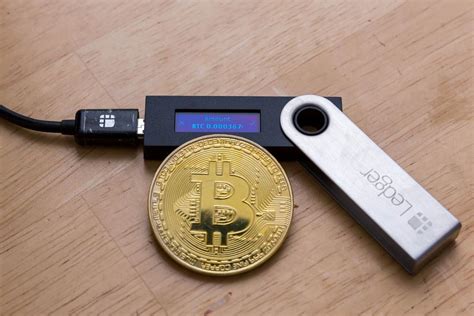The Benefits of Using Hardware Wallets for Long-Term Storage
The Benefits of Using Hardware Wallets for Long-Term Storage
As the world becomes increasingly reliant on digital currencies and online transactions, concerns about security and long-term storage have risen. One solution to address these concerns are hardware wallets, also known as “cold storage” devices. These secure, offline devices are designed to store cryptocurrencies in a physical format, protecting them from hacking and cyberattacks.
In this article, we will explore the benefits of using hardware wallets for long-term storage, including their advantages over traditional digital wallet solutions, the security they provide, and how they can be used to protect your investments.
The Risks of Digital Wallets

Digital wallets, such as exchanges or online wallets, store cryptocurrencies in a virtual environment. While these wallets offer convenience and ease of use, they are also vulnerable to hacking and cyberattacks. In 2019, the infamous Coincheck hack exposed over 850 million yen worth of cryptocurrency assets, including those stored in digital wallets.
In contrast, hardware wallets offer an offline storage solution that is resistant to cyberattacks. These devices store cryptocurrencies in a physical format, making it difficult for hackers to access them even if they gain access to your digital wallet credentials.
The Benefits of Hardware Wallets
So, what makes hardware wallets so secure? Here are some of the key benefits:
- Offline Storage: Hardware wallets store cryptocurrencies offline, meaning they don’t require any internet connection. This reduces the risk of hacking and cyberattacks.
- Physical Security: Hardware wallets are designed to be physically secure, making it difficult for unauthorized people to access your wallet or compromise its contents.
- Cold Storage: Cold storage refers to storing cryptocurrency on a device that is not connected to the internet. This means that even if hackers gain access to your digital wallet credentials, they will have no way of accessing your stored cryptocurrency.
- Key Management: Hardware wallets allow you to control who has access to your cryptocurrency keys, making it easier to manage and protect your assets.
How Hardware Wallets Work
A typical hardware wallet consists of a small device that plugs into your computer via USB, such as Ledger Live or Trezor. The device stores cryptocurrency in a secure physical format, using advanced encryption methods to protect it from hacking.
The process of using a hardware wallet is simple:
- Back Up Your Wallet: Before storing your cryptocurrency on a hardware wallet, you should make sure it is backed up to prevent data loss.
- Create a PIN or Password – Create a unique PIN or password for each wallet, making it harder for unauthorized individuals to access your stored cryptocurrencies.
- Transfer Cryptocurrencies – When transferring cryptocurrencies from your digital wallet to your hardware wallet, you will need to follow specific instructions as the transfer process may require physical verification.
Bottom Line
Hardware wallets offer a secure, offline storage solution for long-term cryptocurrency storage. By reducing the risk of hacking and cyberattacks, these devices provide peace of mind for investors who want to protect their assets from market volatility or other security threats. Whether you are an experienced investor or a newcomer to the world of cryptocurrencies, hardware wallets are an essential tool for safeguarding your investments.
Recommendations
- Start with a reputable brand – Look for established brands like Ledger, Trezor, and Electrum that offer high-quality hardware wallets.
- Do your research and compare prices: Compare prices across different manufacturers to find the best value for your needs.


Leave a Comment